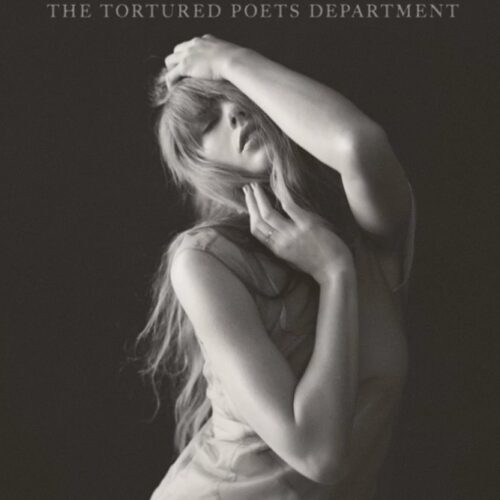Given the immense popular pressure, the idea is to become candidly Swiftie later, that is, at the end of this never-ending listening, listening to the album everyone’s been talking about since Friday: The Tortured Poet Department : The Anthology, Taylor Swift’s eleventh album. No matter how hard we try, we’re not sure we’ll get through it.
Of course, Tay Tay isn’t alone at the top of the pop Everest for nothing, as we’ve known for a while: she’s the absolute mirror of her generation, white, shiny, American. She is an absolute role model for the next generation: beautiful, independent, wealthy, in full control of her destiny. A conqueror’s talent, to be sure. Owner of her means of production at the highest level, capable of prodigious public image engineering. Self-reliant, feminist, tolerant and open-minded, pro-LGBTQ+, happily in love with a highly gifted NFL player. All in all, relatively progressive and hopeful in the American context of a real upcoming fascist threat.
Artistically? Tay Tay is the triumph of the self-constructed, the self-made pop superstar. It’s the total conquest of the public, which is fully satisfied with comfort food and pop efficiency at the expense of creative risk and aesthetic uniqueness. The talent of the now-billionaire lies rather in rigorous productivity (between world tours and Chiefs matches, the factory releases 31 tracks, no less), in the ability to reproduce a cool style without giving it a twang of its own.
As she points out in the title track of this 31-track album, she’s (really) not Patti Smith. Among the nicknames stuck to her, isn’t there outright The Music Industry ?
For 2 hours and 2 minutes, then, we witness (another) deployment of generic pop, stylistic exercises supervised by their own designer. This is the judicious mix of intelligent pop crafted alongside directors Jack Antonoff (Bleachers) and Aaron Dessner (The National). Pop, americana, folk pop, synth pop, indie pop.
In 2024, to the delight of the more mature hipsters who join the millions of swooning teenagers and young adults, Taylor Swift makes music from the 2000s and regurgitates it to the younger generations, thus producing an apparent unanimity where the absolute majority seem to find themselves, from the willing midinette to the self-righteous adult.
Yes, there’s a profusion of efficiently constructed songs, cleanly produced by a judicious name-dropping of producers and embellished by an array of guests: Post Malone, one of pop’s master sausage-makers, and Florence Welch, who hasn’t rewritten history either, failing to conquer vast audiences in the teeming hipster scene.
Yes, you get hooks and more hooks. Earworms squat in the auditory pavilions, we gorge ourselves on so many direct evocations, not to say imitations. Take “So Long London” or “I Can Fix It” and think a little of T-swizzle’s friend (we observed at the Grammys), the great Lana Del Rey, who has a real angle. Poetry in Taylor? Mmm yeah… maybe sometimes, but generally speaking, there are ruminated, digested and duplicated ways of doing things. This doesn’t rule out evocations of past love troubles that fans revel in, one thinks of Joe Alwyn in “So Long, London” or Matt Healy (The 1975) in “The Black Dog”.
We listen and listen and listen to this indie pop /synth pop /americana that has become pop for the widest market, praised by millions and millions of Swifties who are not about to curb the hallucinatory enrichment of their empress, let alone question her so real reign.
























